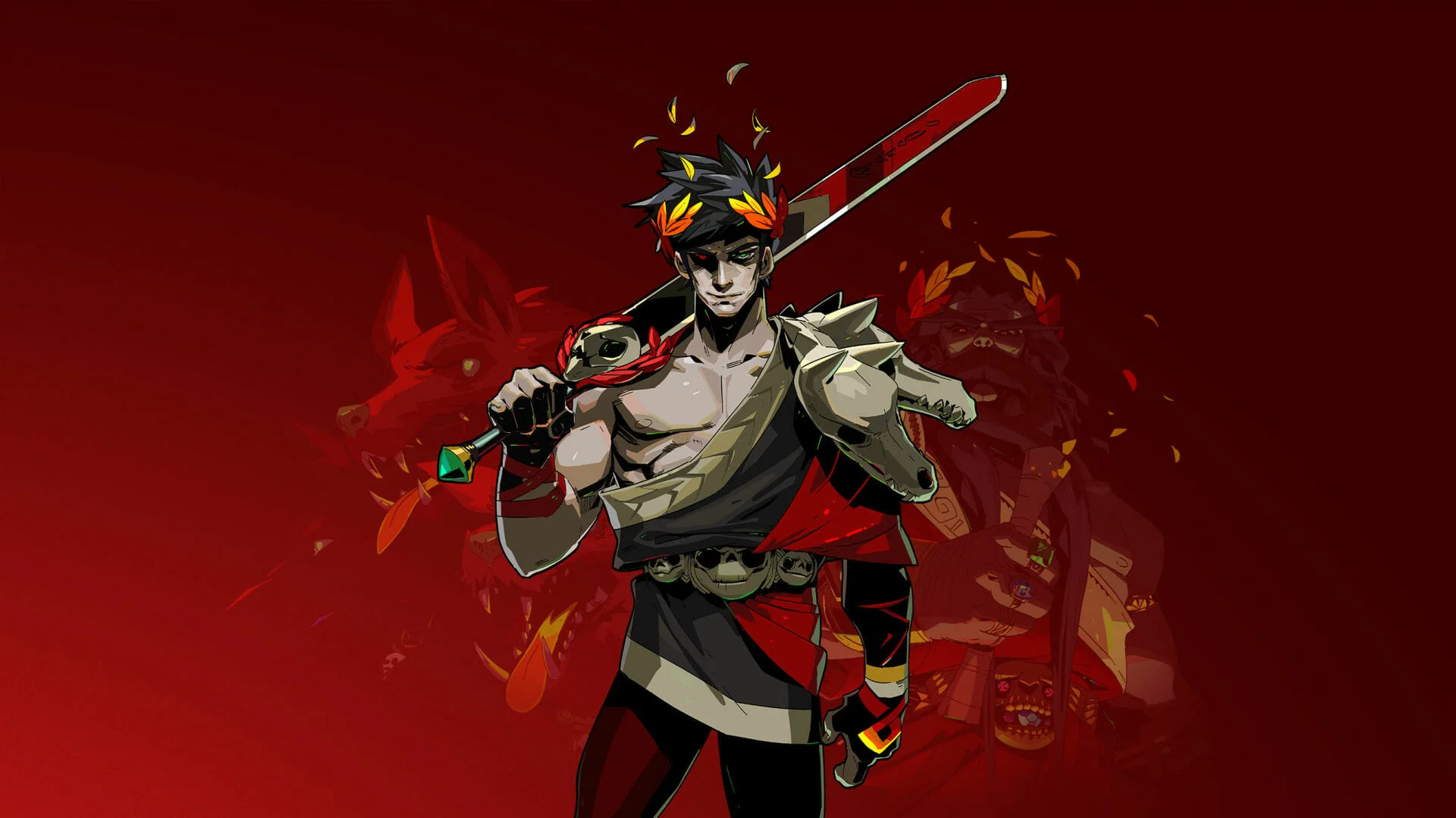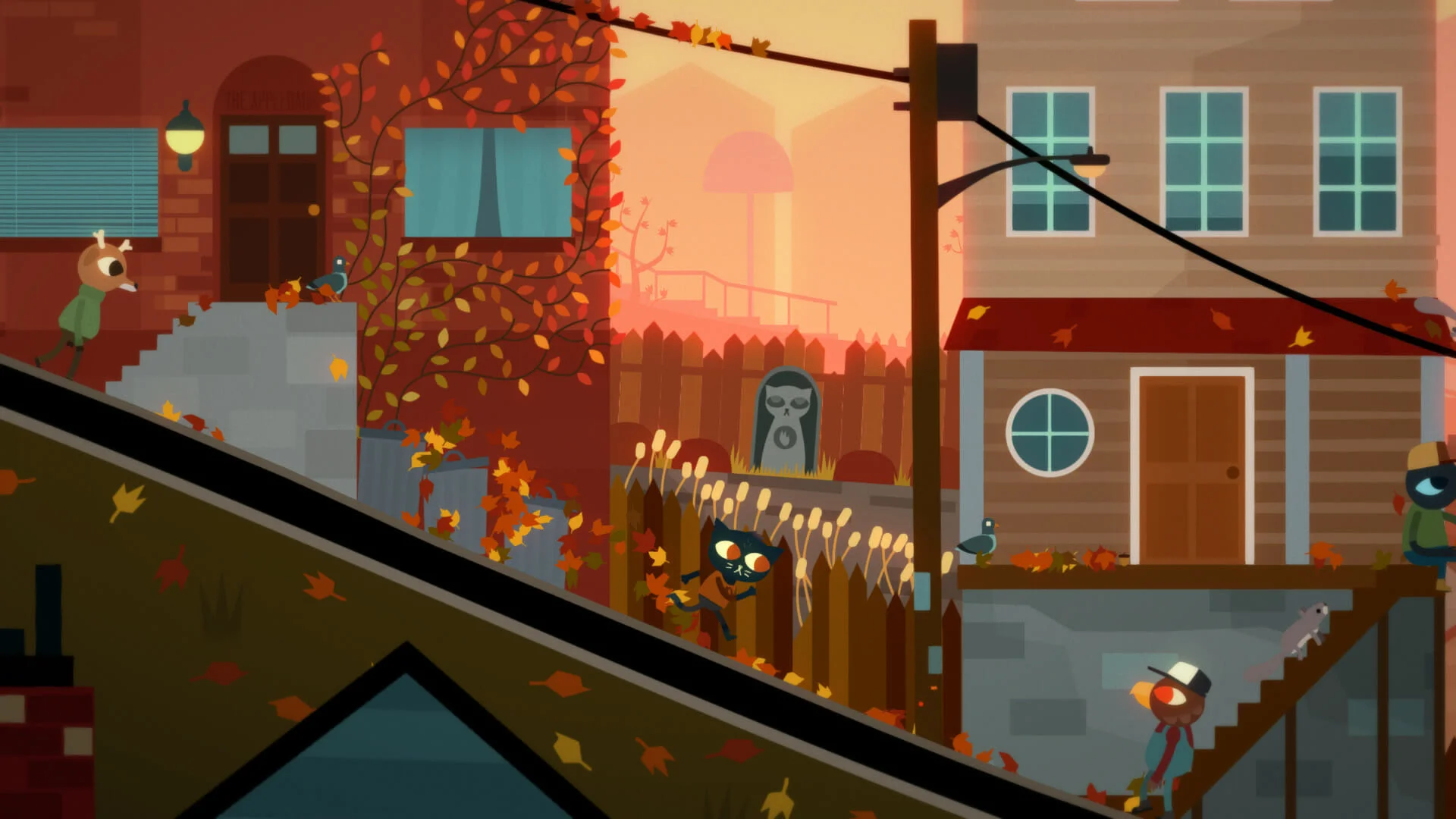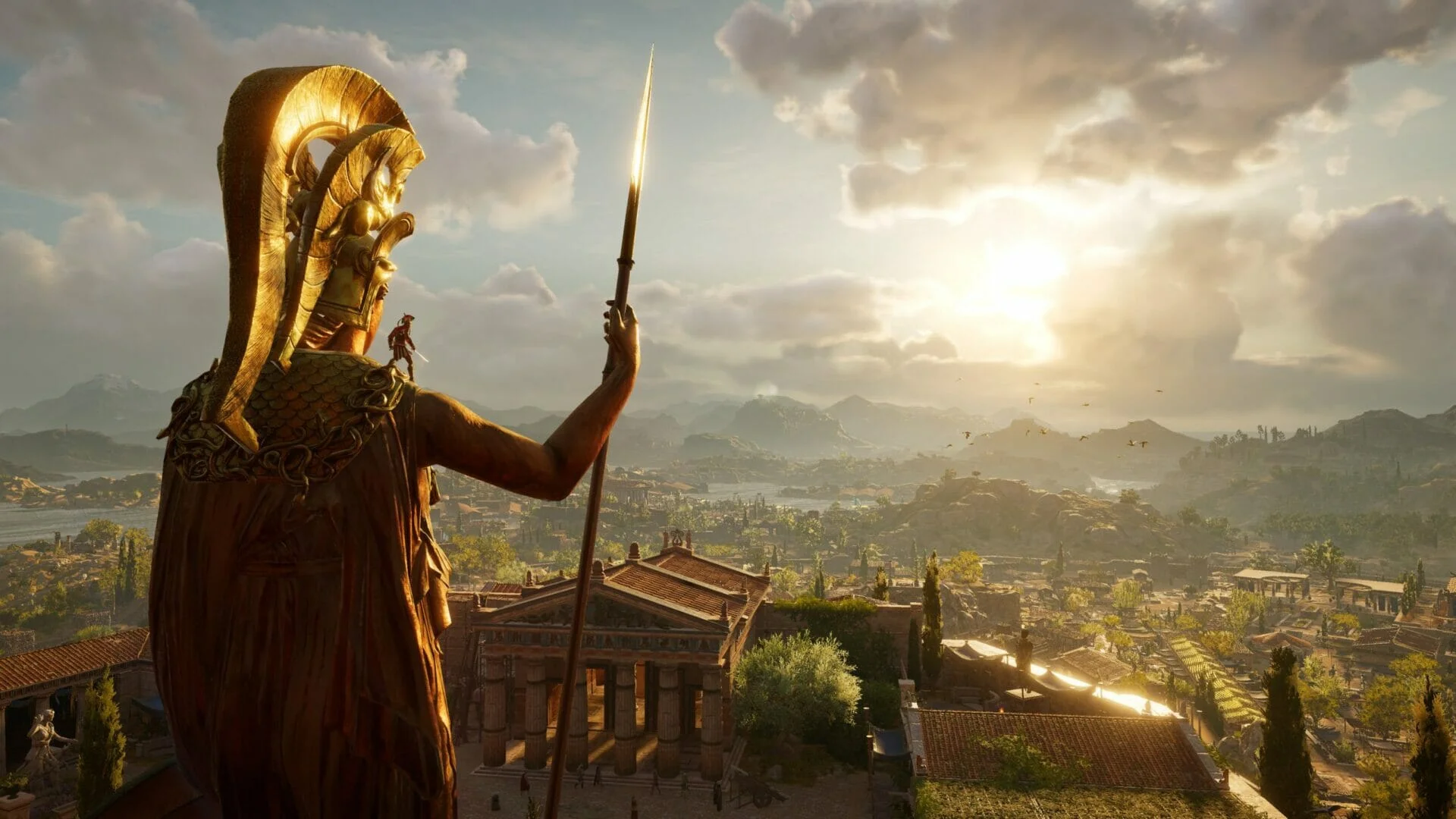
Assassin's Creed Odyssey | A Whole World to Explore
Game designer
Studio
Art Director
Lead Composer
Publishing Year
Country
A few years before Assassin’s Creed Odyssey, the franchise was hitting a rough patch. Its yearly releases weren’t met with the same popularity than the first games in the series. Assassin’s Creed Origins, published in 2017 managed to revitalize the franchise with its larger open-world and role-playing elements. Released one year later, Odyssey leans further into those aspects to become a full-fledged role-playing game (RPG). Like other RPG, it now allows the characters can now improve and level up over the course of the game. But mostly, the game gives players multitudes of choices and a whole world to explore.
Embark on your own Odyssey
Assassin’s Creed Odyssey brings players back to the 5th century BC in Ancient Greece. It is set at the height of the Peloponnesian War, a decades-long conflict between Athens and Sparta. The story follows a Spartan mercenary as they travel the Greek world. Starting on the small island of Kefalonia as an outcast misthios, through their odyssey, the players grow into a legendary Greek Hero. As the player moves along the story, takes part in the war, interacts with famous historical figures and encounters mythical creatures.
The freedom of choice
Role-playing games are characterized by the amount of freedom given to their players, and Odyssey is no exception to this rule. For the first time in an Assassin’s Creed game, it is possible to pick between two playable characters, Alexios or Kassandra. Comparably to FromSoftware’s game Elden Ring, the choices that are made have a repercussion in the story. The players can alter their protagonist’s personality freely. They can choose to be a just and virtuous mercenary, a playboy, or a psychopath who murders everybody. The dialogue options allow the players to interact with the world in a more meaningful way. Some decisions can even alter the trajectory of the plot.
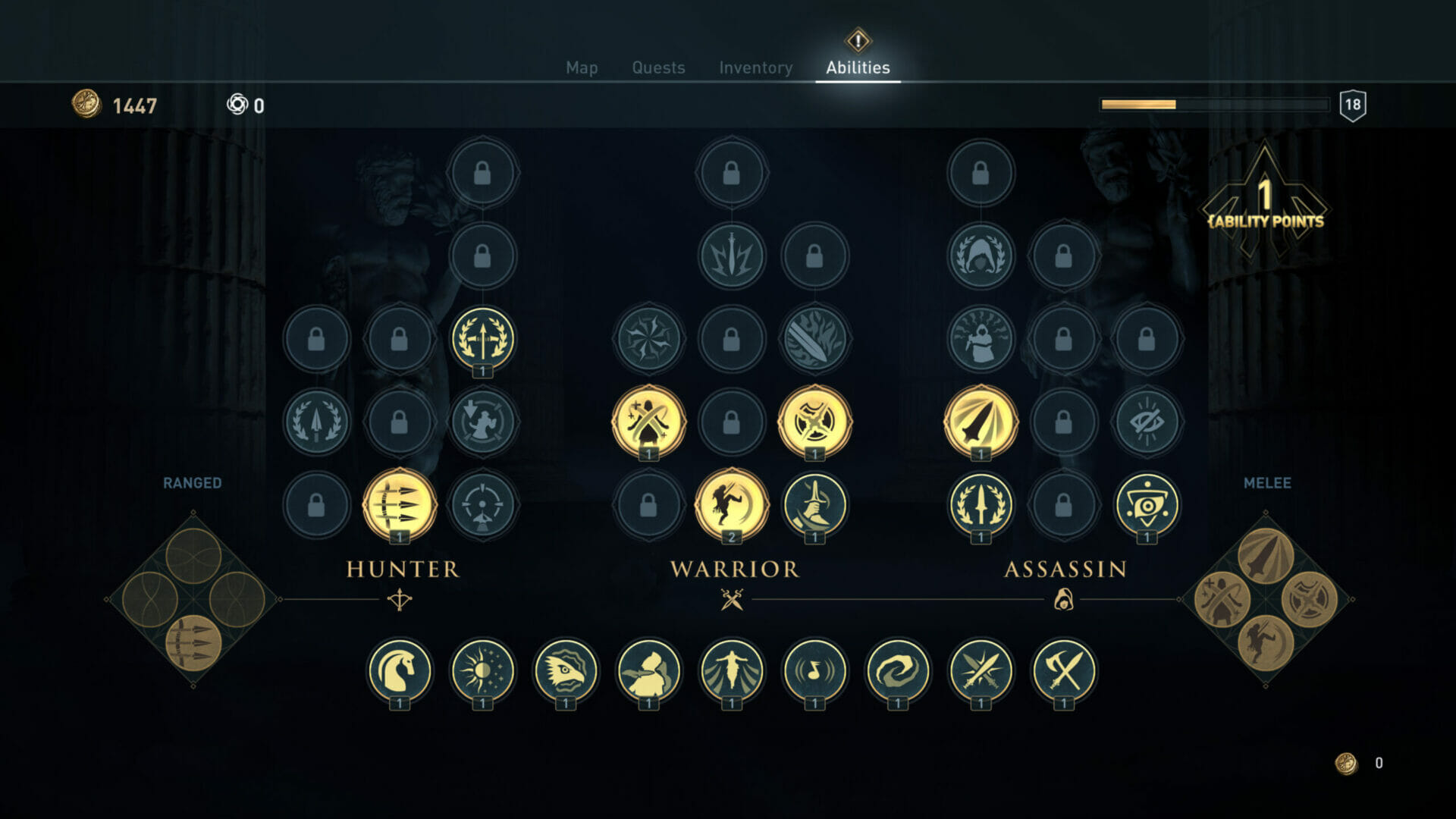
The players can also tailor the gameplay to their tastes. A branching skill tree lets them choose between competences from three categories: stealth, close combat or long distance. It is impossible to acquire all the skills or to max out everything. The choice of a weapon also changes the style of combat. Although that difference is subtle but still big enough for players to have a favorite kind of weapon according to their strategies.
Explore Ancient Greece
Forests, white beaches, volcanic islands, mountains… Ancient Greece has it all. It’s also without a doubt one of the richest settings ever when it comes to man-made monuments and objects, a time of massive temples and statues that really stimulated and challenged our artists. It was said at that time that Greece had been created by the gods, and we’re proud and excited that players will discover in our game one of the most credible recreations of those place and time.
Jonathan Dumont, creative director of Assassin’s Creed Odyssey in an interview with Codec Moments
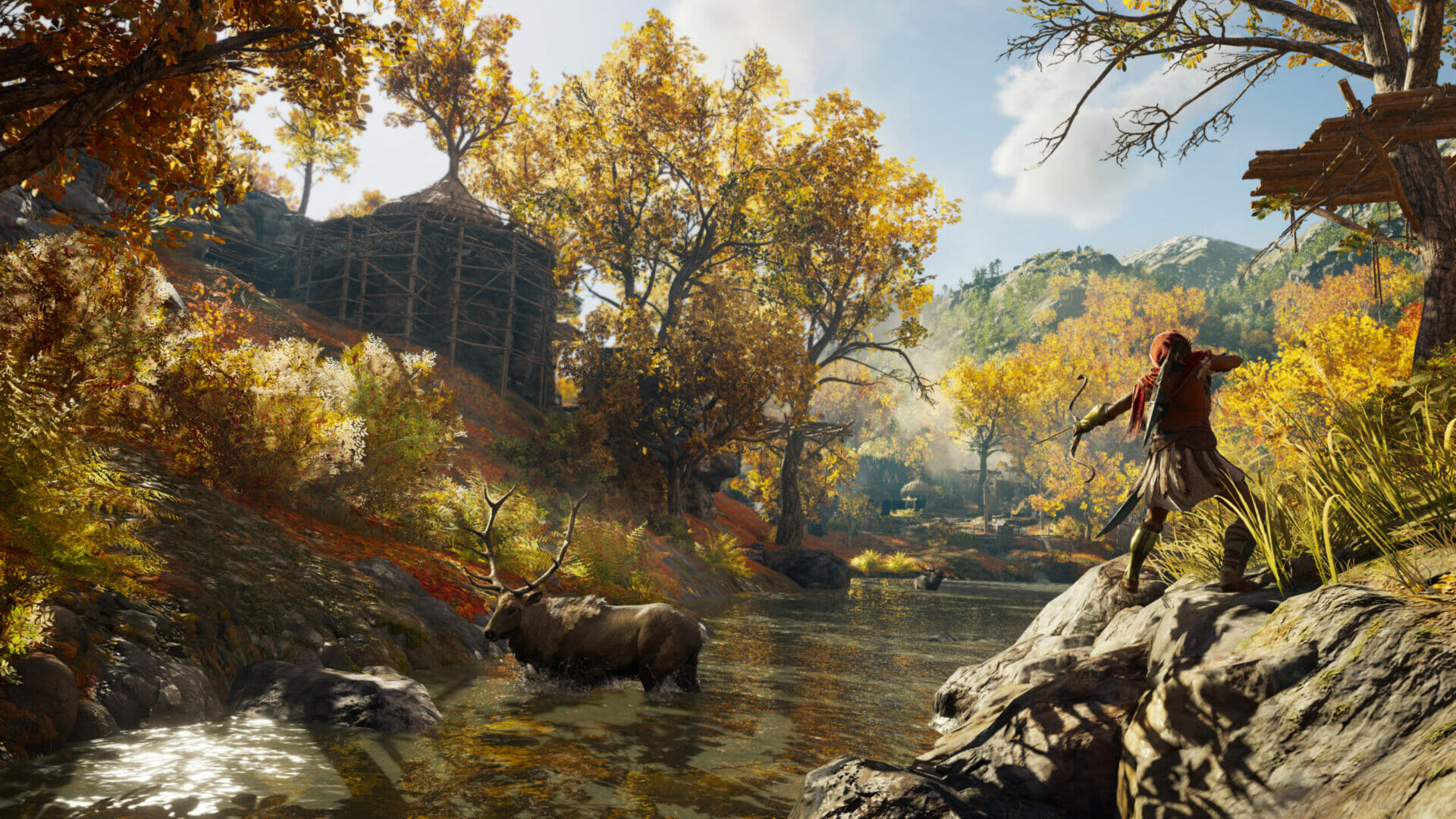
Odyssey’s breathtaking open world is one of the biggest strengths of the game. Asides from its stunning graphics, it offers a large diversity of settings in which players can interact. The islands have their own identities and histories, which Ubisoft recreated with their researchers’ help. The players can wander through autumnal forests, colorful ruins or ancient cities. They can also set sails on turquoise waters and swim in them, looking for treasures. All of this is brimming with life, humans and animal. There is a whole world to explore, and it is as pleasant to take a stroll and enjoy the scenery as actually to play the game.
Odyssey also offers a lot of different activities, from infiltrating camps to participating in the Peloponnesian War. Players can take part in full-fledged battles opposing hundreds of Spartan and Athenian soldiers. They can also engage in naval warfare, compete in the Olympic games or debate with Socrates.
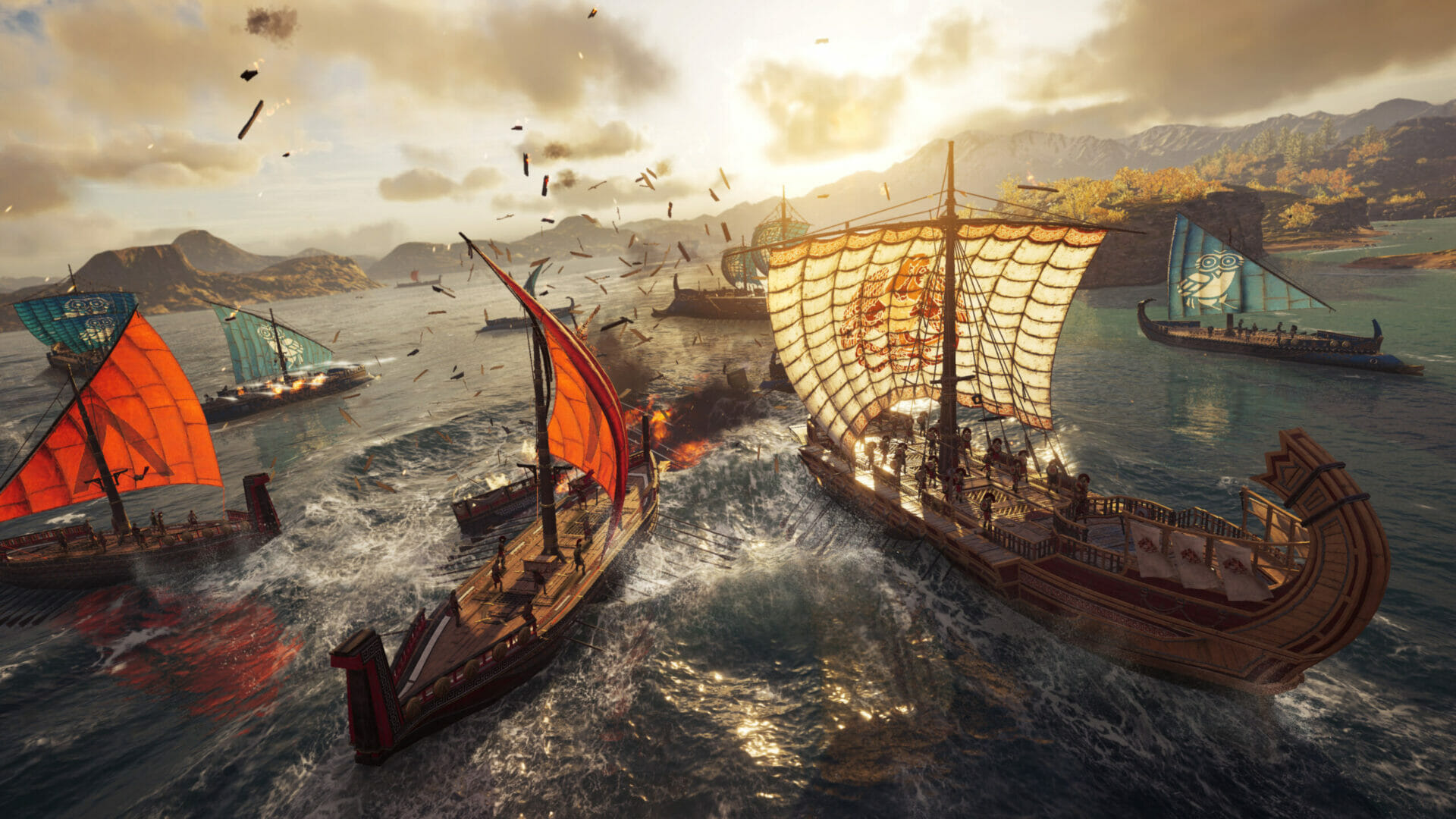
More mercenary than assassins
Fans harshly criticized the loss of the Assassin’s Creed lore. First released in 2007, the Assassin’s Creed series depicts a millennia-long struggle between two secret organizations, the Assassins and the Templars. The games also feature a historical setting as well as modern-day sequences. The playable historical characters were the ancestors of the present-day ones. Players had to submit to a strict script. If they deviated from the mission goal they were desynchronized, which was the game equivalent of dying.
In Odyssey, there is no presence of Templars or Assassins. In fact, the game happens a few centuries before the birth of the Assassin Order, the setting of Origins. The Atlantis storyline, among other elements, also includes magic in a franchise that previously banned it. Depending on the gameplay, it is even possible to discard the stealth elements that are a crucial part of the Assassin’s Creed world. If it weren’t for the modern-day sequences, the game would have no links with the rest of the franchise. Yet, for those who can ignore the rule-bending, Odyssey is a breath of fresh air for a series that was slowly dying with its yearly releases.
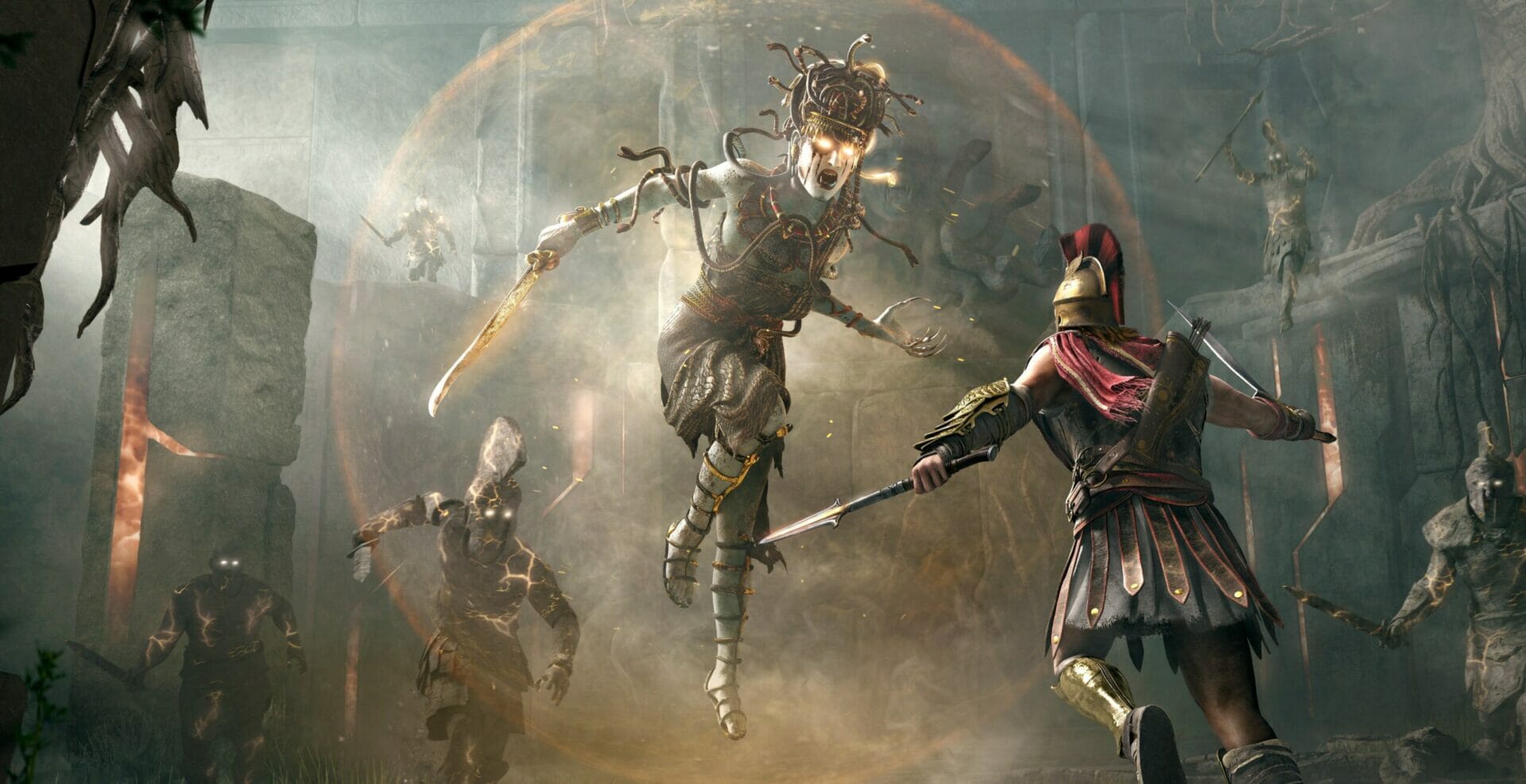
Assassin’s Creed Odyssey‘s setting in a well-known and well-liked period, Ancient Greece, contributed to its popularity. But its strength lies in the liveliness of its world and the freedom it provides to its players. Like American novelist Madeline Miller’s Song of Achilles, which revisits the story of Achilles and Patroclus, what makes their reinterpretations so effective is that they place the public at the center of the experience. Miller’s use of the first-person narration makes the reader identify with Achilles, while Odyssey allows the player to have a glimpse at what life could have been during this period.
Tag
Buy a ☕ for Hypercritic





